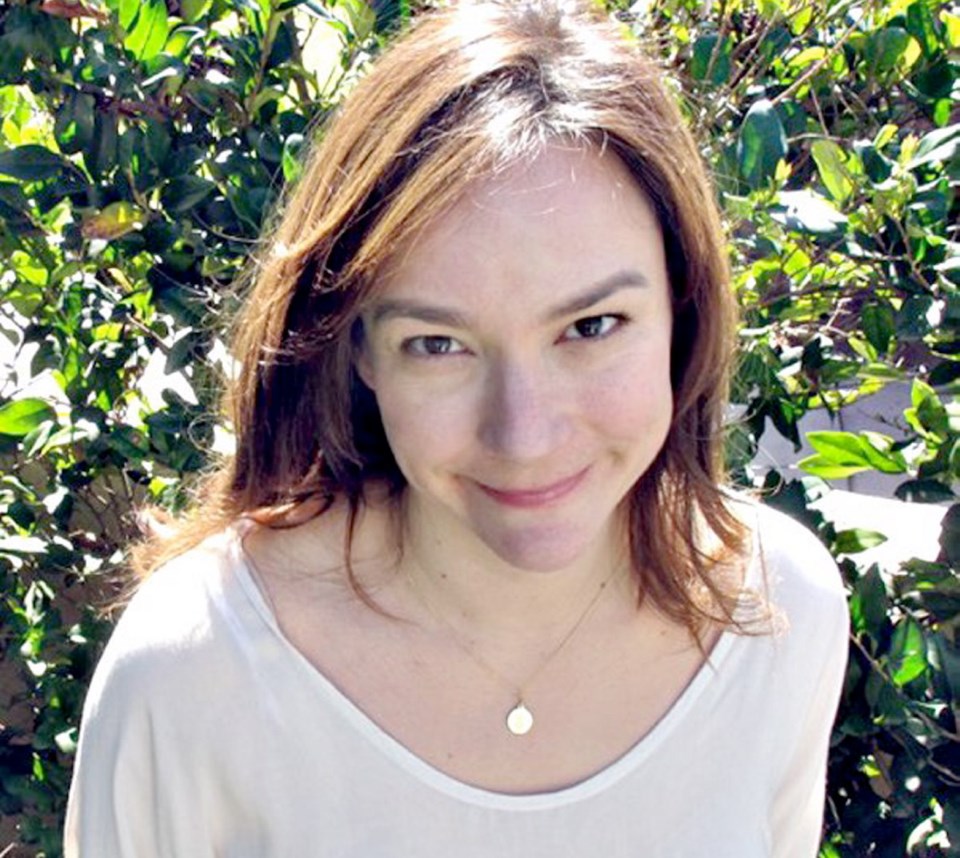Semi Chellas laughs as her six-year-old son interrupts our conversation about film and television, declaring, “Life is not fair, is it mom?” during a break from his lightsabre battle.
“We’ll try to make it more fair, like Dr. [Martin Luther] King,” the proud mom assures him before continuing an interview from her home in Los Angeles, where her two children and their friends are having a playdate.
Fairness apparently hasn’t been an issue for Chellas herself. The Calgary-raised writer and producer has had plenty of fair shakes, most recently as an Emmy-nominated Mad Men writer and executive producer.
She’s well aware that AMC’s hit series about the exploits of troubled adman Don Draper and his Madison Avenue co-workers in the 1960s is what she’ll be asked about most during the Victoria Film Festival.
“People always ask what your favourite character is,” says Chellas, featured at Saturday’s In Conversation With ... at 11 a.m. at the Vic Theatre. “I say it’s like my children. How can I ever choose?”
Before joining Mad Men in Season 5, Chellas’s credits included co-creating the Canadian TV series The Eleventh Hour, making four short films, writing Bruce McDonald’s 2001 thriller Picture Claire and scripting episodes of Rookie Blue and Being Erica.
Three of the Mad Men episodes she co-wrote with creator Matthew Weiner earned Emmy nominations — Far Away Places, in which Roger Sterling tries LSD; The Other Woman, when Peggy Olson quits Sterling Cooper for a promotion at a rival firm and Pete asks Joan to make a moral sacrifice to land the Jaguar account; and Lost Horizon, when Don goes AWOL from McCann-Erickson and Joan takes a stand against sexism.
“It was like a dream come true,” says Chellas, who is in her mid-40s, recalling her experiences as writer and showrunner for the groundbreaking series during its final two seasons.
As daunting as it was joining the L.A.-filmed series midstream, Chellas says Weiner warmly welcomed her. He could relate to how strange it would feel for her to type “Don Draper” for the first time on the page. “Matt had joined The Sopranos in Season 5 and it was his favourite show,” she says. “He talked about how he remembered going to type ‘Tony Soprano’ and how surreal that was.”
Jokingly describing herself as “this crazed fan who, overnight, was walking around the Mad Men set,” she credits Weiner for making her feel at home.
His reaction when Chellas announced she was pregnant with her daughter, now almost four, six weeks into her Mad Men gig, spoke volumes about his character, she said. “I really didn’t know how that would go, but he was super-happy and embraced me, took me into his office and told me the end of the series,” she recalls. “Now that’s job security, right?“
While Season 4 “took the show to a dark place,” the challenge was imagining how it would go from there, she recalls. “Season 5 was an interesting study of success and the perils of daring to be happy.”
The Yale-educated producer says there were so many different types of writers on Mad Men — including playwrights, advertising consultants and comedy and drama writers aged 28 to 82 — she never felt like an outsider.
Chellas, who is now working on Steve McQueen’s upcoming HBO miniseries Codes of Conduct, says it’s understandable that she’s so often asked about what went on in Mad Men’s writers’ room.
“I don’t think anyone had even heard of a writers’ room a few years ago. Twenty years ago, nobody had even heard of showrunners, but it seems people are now super-aware of how a lot of TV is made.”
The reason there are so many writers, she says, is because “it’s too much for one person to be on top of 13 or 22 episodes of television at once.”
She says every showrunner needs to delegate, and there were generally seven scriptwriters and five consultants to work with.
If Mad Men helped fuel the explosive growth of “binge-watching,” as well as cable series, it’s probably because fans unfamiliar with AMC couldn’t find it and wanted to catch up when it took off, Chellas says.
Chellas admits she enjoys binge-watching TV shows more than watching them weekly, as viewers did shows such as NYPD Blue and ER.
“I feel like watching TV is turning into reading, like the way people approach novels,” she says. “Sometimes there’s a kind of consensus, and other times your friends are reading books you’ve never heard of.”
Her first binge-watching experience, she recalls with a laugh, was in 1999, after she and her creative partner Ilana Frank sold their series The Eleventh Hour.
Although Chellas had never written for TV, she had been nominated for an Emmy Award for Restless Spirits, a family feature that played as a TV movie in the U.S., opening the door for a series pitch. “But I never had a TV, so I went out and bought one,” recalls Chellas. “Ilana gave me as a present a DVD player and the first season of 24 in a boxed set. Oh, it was totally binge-able.”
